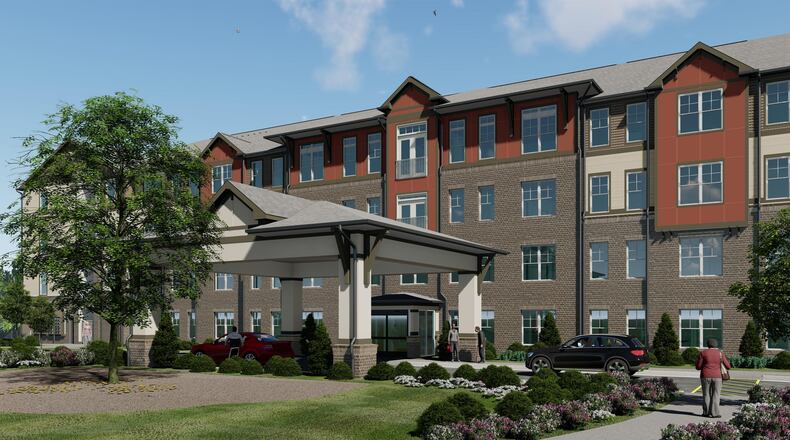Construction is underway at a new $36 million apartment complex for seniors coming to southwest Atlanta.
The four-story development, located in the Sylvan Hills neighborhood, will have 183 units priced affordably for seniors, according to The Benoit Group, which is partnering with the nonprofit Atlanta Neighborhood Development Partnership on the project.
“Ensuring the availability of safe and high-quality rental options for low- and moderate-income seniors in our city is a growing need,” says John O’Callaghan, ANDP’s president and CEO, said in a statement.
Most of the units, about 130, will charge rents that are affordable for people making less than 60% of the area median income, which is $86,200 for a family of four in metro Atlanta. The remaining 50 units will be priced for people making less than 50% of the area median income.
It is set to open in late 2022 at 1950 Sylvan Road and will have a fitness center, activity room for resident programs and a café. A groundbreaking ceremony was held last week.
The complex, called Sylvan Hills Senior, is the first part of a larger development project for the land, The Benoit Group said. The 19-acre property was previously home to the Sylvan Circle Apartments, which have been demolished.
The neighborhood, located just north of Arthur B. Langford Jr. Parkway and east of Fort McPherson, is a historic, mostly residential area. Today, it is predominantly Black, and its residents have a median household income of about $31,000, which is half of the median household income for the city as a whole.
“Sylvan Hills Senior will be an economic catalyst to spur future development on the southside of Atlanta,” said Torian Priestly, chief development officer for The Benoit Group.
The project includes over $21 million in public funding from the city’s Housing Opportunity Bond Program and state and federal Low-Income Housing Tax Credit dollars.




